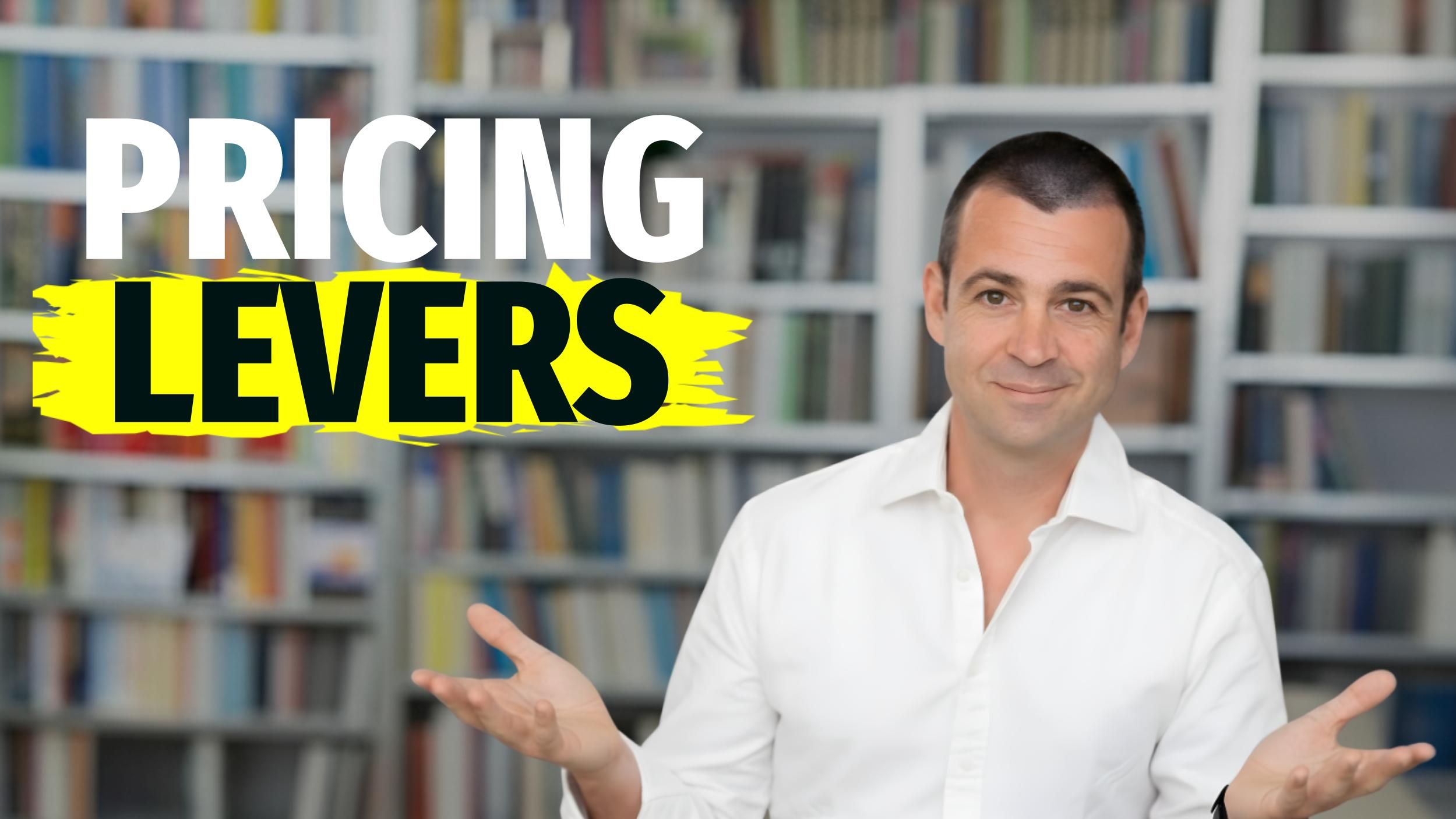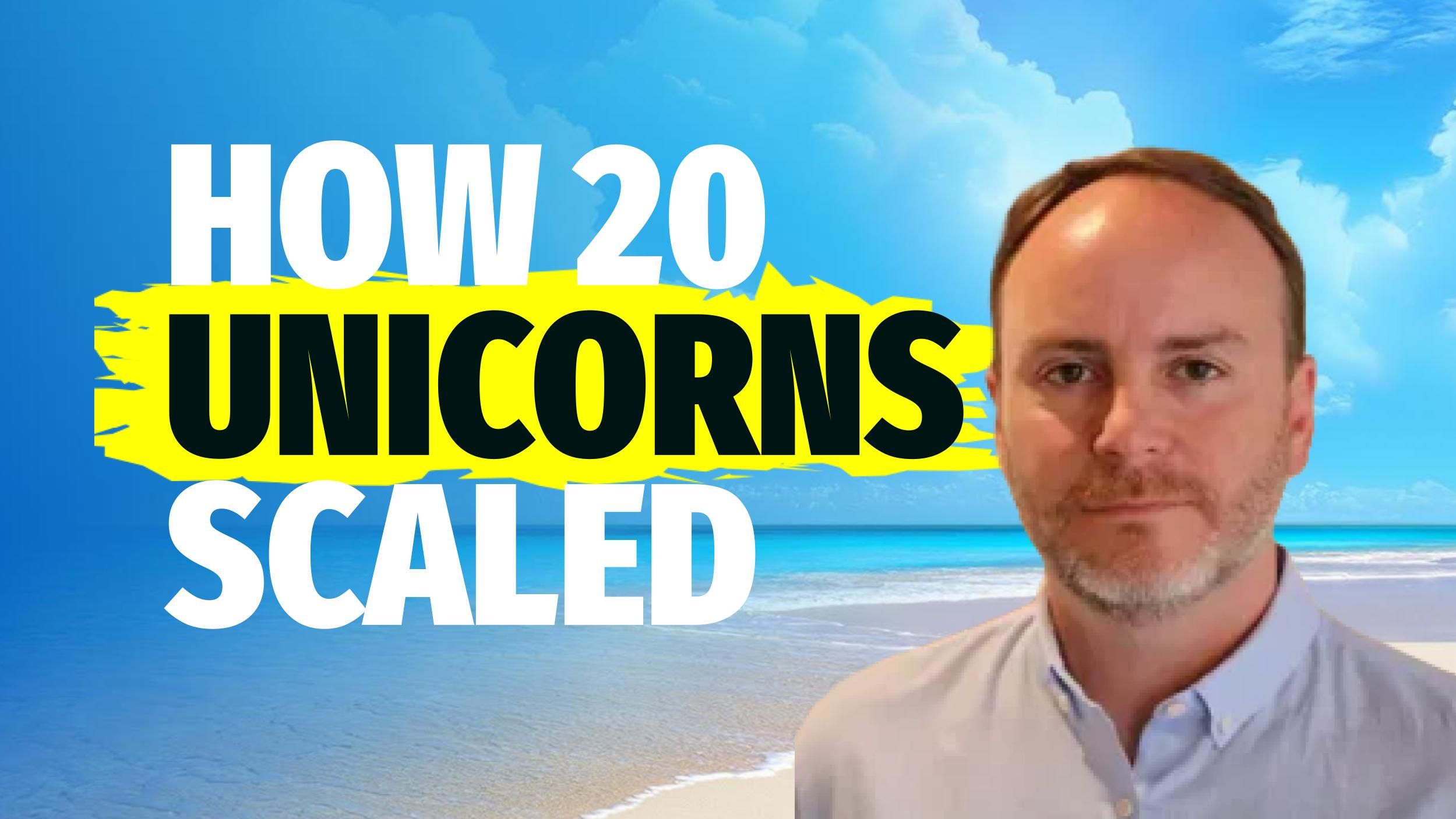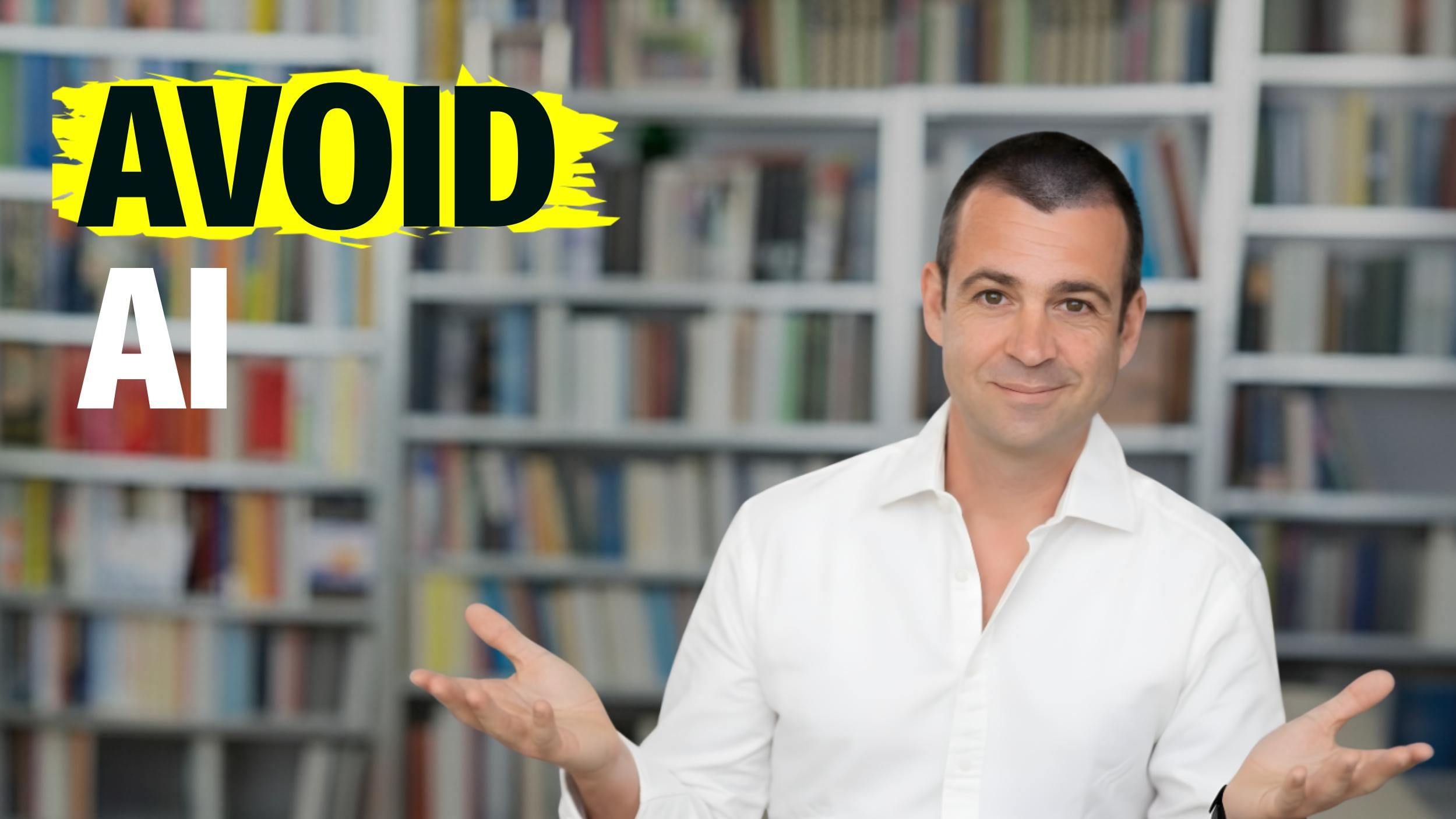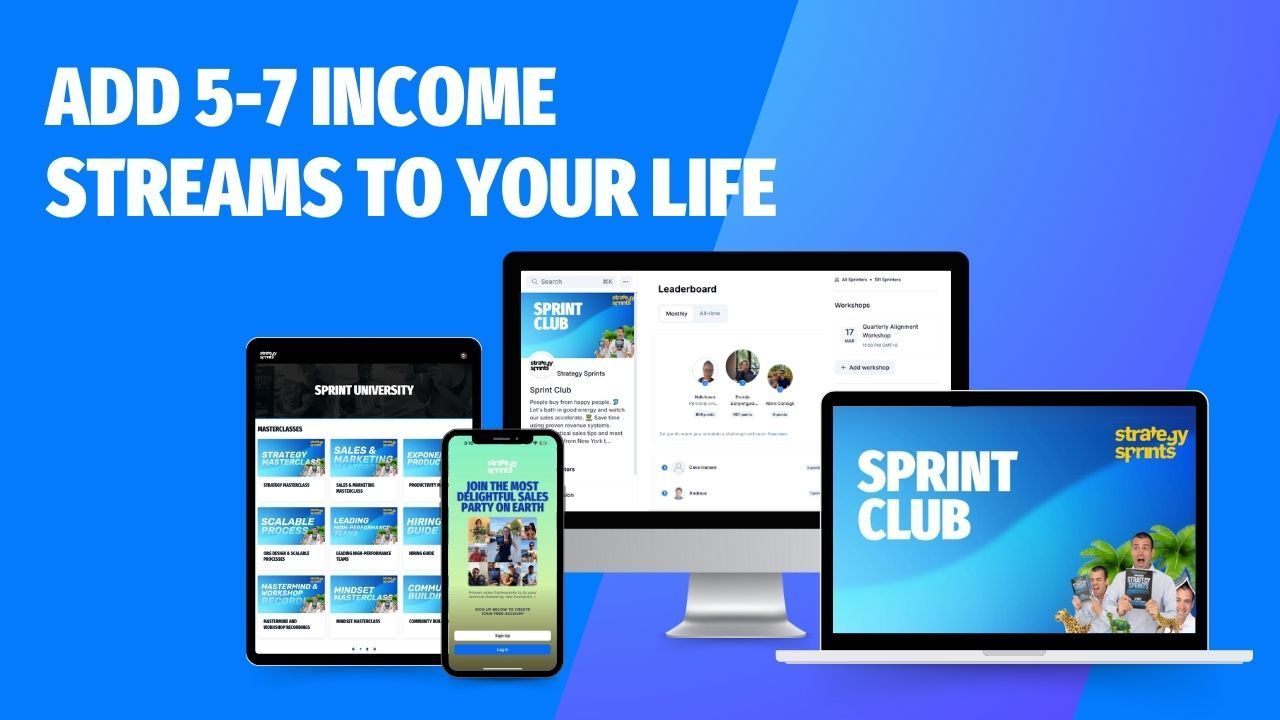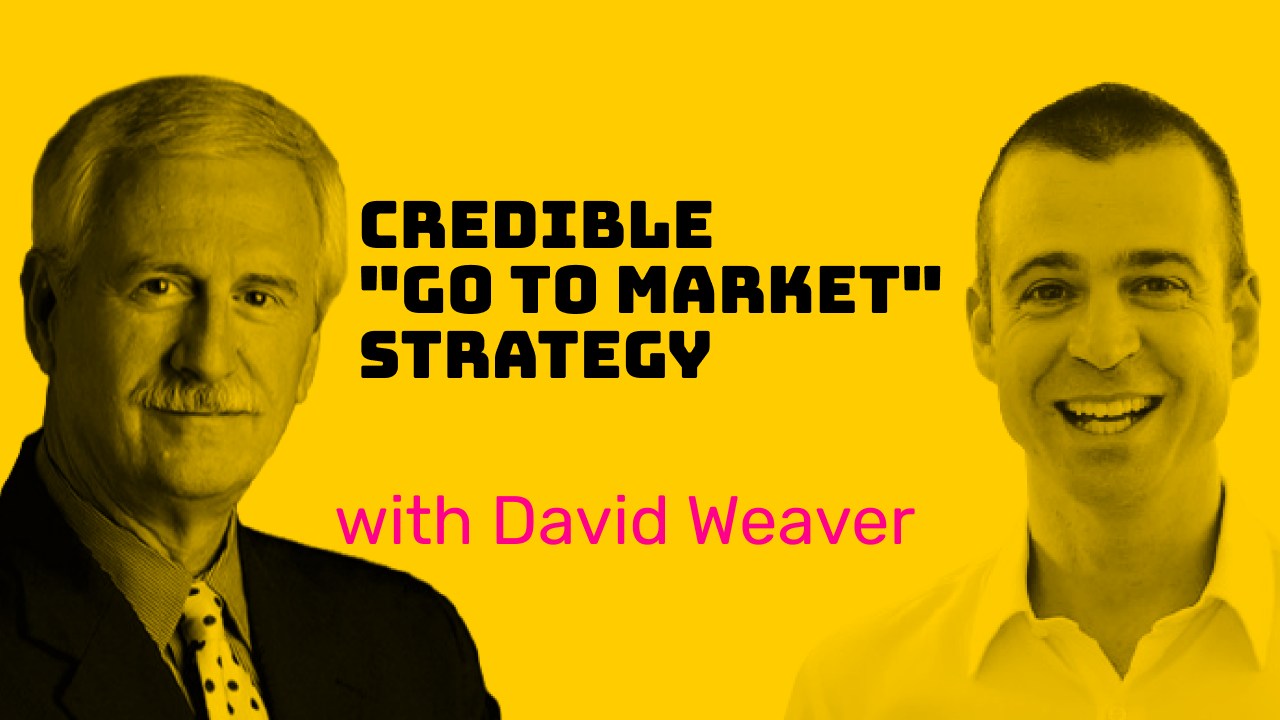
Credible "Go To Market" Strategy | David Weaver | STRATEGY SPRINTS 164
In this episode, Simon welcomes David Weaver, the partner and chief investment officer of City Side Ventures. He is a highly accomplished business executive, results-driven leader and innovative problem solver with entrepreneurial spirit and sense of urgency. He has over 35 years diversified management experience, which includes global profit and loss responsibility (Johnson & Johnson), turning around troubled business operations (Warner-Lambert), directed major market shift for clients to achieve new growth. He is also an expert at building management teams, setting and exceeding milestones. In addition, he has helped raise private (angel), venture (VC) and public (IPO) capital of over $35 million. Let’s listen to David’s sharing on credible go to market strategy.
3 Valuable Insights:
- Surround yourself with your board of advisors or board of directors
- Join a group of investors rather than being a sole investor
- Decisions need to be sound and don't be afraid to ask for advice and then take it.
(00:02) -Simon: Three, two, one. Roll the footage.
(00:14) - Simon: Welcome back to the Strategy Sprint podcast. I'm your host, Simon Severino. And my guest today is the chief investment officer for Berlin Bingham Angels. City side ventures in Michigan. Welcome everybody. David Weaver.
(00:33) -David Weaver: Thank you, Simon.
(00:35) - Simon: Cool to have you here, David, you brought a ton of insights, both for investors listening right now. So a little bit, what are you currently up to?
(00:51) -David Weaver: Um, well, we, we, uh, started, uh, just recently a fundraise for the great lakes angels fund. It'd be a $10 million early stage fund to also put, um, early capital into companies that might be some of the same companies that Birmingham angels would be funding, uh, were true, seeing investors. Many of the details we're looking at, uh, don't have to adjust Michigan, but they are normally pre-revenue early stage companies where angels are desperately needed, help them get that first capital get to market. So we're in the midst of doing that. And also I'm starting to launch a side pitch our software for, um, collecting deal information as a new venture management system that allows, um, entrepreneur, um, systems, um, startups and, angel groups and stuff like that to process deals much faster. So you can get capital faster and execute rather than keep chasing the money.
(01:51) - Simon: So tell us about your current funds. What's the size and who, who are you looking for?
(01:58) -David Weaver: Um, it's, it's a $10 million fund or a minimum investment. One unit is 50 K. Um, um, I have to be careful security laws. We're not openly soliciting funding right now this way, but, um, um, it's going to be an early stage technology companies. That's all we do is just technology companies and a lot of different sectors from wearable technology to, um, um, SAS models, B2B, uh, life science companies, uh, agritech larger and technology sectors we've seen on our website. And, um, it would be coming from just a credit investors and family offices that have the means to come into the fund and park their money there and write in a fund. Like they wouldn't be in a VC fund. It's, you know, three to five years before there's an exit. So there's no liquidity until there's an exit and then you should only have the exit.
(03:00) - Simon: And how has the atmosphere right now in your portfolio companies? Are they shocked about the pandemic? Are they excited about the growth opportunities?
(03:07) -David Weaver: A few of them, um, have learned that as a slow down on getting the service or the technology into the marketplace, a few of them are well possession that the pandemic is actually helping accelerate the need and application of their product and services. So it's a mix, uh, on all, um, because early stage companies, some of them are not in the market yet, so what's happening in the market. It's not affecting them. There'll be in the market another two years later. And hopefully the market will be a lot different, but the need or filling will still be there. Um, and be strong because of what's happening.
(03:46) -Simon: And what are you, what are you currently observing that, that you wonder about that it's surprising you, that you wouldn't have thought before March?
(03:58) -David Weaver: Yeah. Um, we're pleasantly, um, not to my surprise. We're pleasantly pleased that, um, because of the marketing conditions with real estate, especially cameras, virtual real estate being, uh, very risky right now with a high occupancy. Um, not there people are not going to buildings and building your office space and stuff like that. Um, so the commercial real estate has never been attractive for an investment. The stock market's a very frugal and it's hard to understand what's going to happen there. So many people were seeing that this asset class of angel investing can be attractive for them because they can get three, five X return and greater on their money and let it work over there. Versus some of the other markets were very questionable, whether they be able to stay up with just a normal, um, cost of capital and cost of living appliances. So we're finding more people are starting to look at those asset classes, a good alternative for a new investment opportunity.
(05:03) -Simon: Your first CEO tip is about execution. Can you unpack that?
(05:08) -David Weaver: Yeah. Um, I'm served as a CEO in a few companies and then an officer in other companies. And my biggest recommendation on execution is really to assemble depending on how large your company is that speaking to in the way of the businesses on here, whether they're a small LLCs, uh, privately held, or whether they're publicly traded companies is really surround yourself with your board of advisors or board of directors that add value are just not figurehead. So look nice on your, on your listing of who your advisors are. Board members are, but people bring the old value so that when you get ready to execute, you got some sounding boards. You have people that have different industry experiences like sales and marketing operations and finance and so on as advisors. So when you get ready to say, here's my rollout plan, and you're sharing with them, not really asking them to do your job for you, but share what your thoughts are.
(06:08) -David Weaver: And then they can help find holes in what people are gonna find holes in, what your thoughts are rather than just say, well, that sounds good. Go and execute. And they really didn't challenge it. We want people to challenge what you're thinking. So make sure you find those kinds of people and put them on the board. If they're not adding value, find a way to replace and put term limits on them as well. So they have to, you know, serve a time and you can get, um, dispose on them easily because term limits. So if they're not doing the job, but really, uh, execution is, is vital. I mean, all the startup companies we're investing in, we want to make sure they have a plan to go to market that we believe they can execute. And some of them have great technology, but they don't have anybody that knows how to deliver it to the marketplace. That's a real shortcoming and established businesses. Your model has to keep changing every year, whether the dynamics customer comes first and then satisfying that customer in a way they want to get the product or service, you're going to be superseded by people that can.
(07:10) -Simon: Super excited about your second CEO tip, that is about why the CEO matters. But first one word from our sponsors.
(07:30) -Simon: Tell us about the role and what you would look for.
(07:36) -David Weaver: Um, when we're making an investment, the CEO is probably he's 67% of the decision, the person that is going to be driving, it needs to, we need to know that they have the drive in themselves, that they are going to look for ways to get around the wall and through the wall, not stop at the wall and ask for help. They have to be creative in solving problems. They have to have a history of, um, showing the tenacity to stay with something and persevere. Um, they, we want somebody who's just passionate about the word, but we want somebody that's driven to do the job and get it done and understand that when they are raising money, they have other people's money. We're partners in your business with you. So you have to understand you're putting all our capital or risk in your business. Decisions need to be sound and B don't be afraid to ask for advice and then take it. And if you have a dispute with it, discuss it just don't ignore it. It might be something you don't understand, or they don't understand what the advice they gave you. So it's a two-way street.
(08:51) -Simon: I literally am picturing this wall in front of my of my eyes. And I see people who, when they see this wall, they just sit down and say, well, there's the wall. And then there are people who say exactly, how can we get around it? Can we get over it? Can we, what can we invent? But they would never stop seeking. And this is true. This is so true. And you wouldn't think that a CEO could be any different, but there are. And if you have enough experience like you have, but also when they're seeing in our programs all the time, CEOs that get stuck and they just sit down and say, okay, I'm going to wait until you live is over. And then you realize that's not, that's not the way it works.
(09:38) -David Weaver: No, you have to keep, uh, looking for solutions and, um, ask for advice if you don't see them. And, um, listen to the people that work for you. A lot of people, um, think the people that work below them, um, at least in a position in the company cannot add real value. And some of those people re can add the greatest value and tell you what's happening at their level and what they're seeing in the market and among their peers in the company, they have great advice. So listen to everybody and then test things before we make a bold move, test it and see whether it's going to work on a small sample. And if that works, then, you know, okay, then execute and make it a bigger plan.
(10:20) -Simon: You have also wrote to CEO tips about for the investors. So on the investors side, how can we tap into the minds of others? They collective intelligence.
(10:34) -David Weaver: Um, the greatest way to do that, I think is to join a group of investors rather than being a sole investor, who less that is your whole career is full time in investing. Then you get smart by try on air, lot of hairs, normally for you to get that successful. But in a group, the group intelligence is great for looking at at deals. Um, and like we have a showcase, uh, about once a month. We bring companies to present virtually now and, um, our members in the group, how lot of different industry experiences from now only automotive, but, uh, software, uh, life sciences, all kinds of different backgrounds and different disciplines in that. Um, and when they start asking questions, they ask it from their perspective in their personal backgrounds, stuff like that, that the other people on the call on zoom wouldn't think of.
(11:32) -David Weaver: So that kind of group intelligence for looking at the opportunity on the business side with, uh, the technology, uh, with the marketplace, with the hurdles I have to get through to get to the marketplace, all those things very valuable. So I was suggest investors getting into an angel group. Some of their angel groups now, uh, can be members from around the world. We, we now have some folks from New York and Tel Aviv and stuff like that, starting to join our burn angels because they don't physically have to be there at the meetings anymore. They can do it virtually and sign on to the meeting to see the deals and invest them remotely. Obviously in the fund, we wouldn't be making the final decisions for people, but the nice thing in a fund is rather than sharing, picking every two on your own. Um, as you come across, the fund would put you on 20, 30 deals or more, or the life of the fund. So you're sure that you get some hits out of that many deals to, um, return the reward you're expecting with your investment
(12:32) -Simon: Time for this strategy ward. I'm curious who you pick. So you can pick only one person when everybody’s zigging, this person is zagging.
(12:50) -David Weaver: Who had just invested in, um, here in Michigan, it's called fix my car. It is a startup that is hiring, um, mechanics that are freelance right now because, uh, we, won't not going to dealerships or car repairs right now. It's so hard to book anything when you get there at all the restrictions and stuff. So they're taking advantage of the COVID pandemic right now. And, um, the founder of that company has spent like two years making calls on shops that are doing bodywork and service, stuff like that and mechanics. And then, um, as found that, um, they're able to hire some mechanics that are not working full time and in the body shops anymore, or the dealerships anymore because of slowdown people bring their cars in. They have free time while they can book time with this entity and they go to the people's home or office and fix it on the spot.
(13:48) -David Weaver: It's fixed like the same day. And you don't have to call a dealership to make an appointment or a body shop, stuff like that. So he's getting a lot of business right now. They're launching a Texas. They're rolling out here in Michigan, some other States, and he's learned a good business model where they, the mechanics are making more money doing this freelancing than they are in some of the people that have left their job and are now working with this company and they're selling it across the country. It's going to really catch on. Um, and, uh, his model is that, uh, he learned by spending a lot of time in the field, understanding what the issues are and, uh, people want to have things done right now. You have to stay home pretty much you're home bound. So if somebody could come in and do a minor, repair your car and get it fixed for you within an hour or two hours, the same day, same morning, whatever, what a life savings add is to people. And it's a great opportunity to make some money based on what's happening and for it's a win-win and user wins, the mechanics win, and he gets a cut on every as well. So the investors went
(14:54) -Simon: It’s a wonderful example of how limitations make us creative and the, and even this might even be a model that also stays an interesting model post. And they make, because it's so much, it's a lean model. It's so much more resilient and viable. And, uh,
(15:15) -David Weaver: Well, there's a company that does replace a window shield windshields on cars, wherever you are at the time you want and stuff like that, and made a whole business around that. And, uh, the same thing can happen here. This can be a whole nationwide or international business when people just hire these people to come right to where you are, take care of your mind or repair. And you're often writing. If it's a major repair, they've also partnered with people that can bring up a trailer, all the car to the nearest dealership where it, or wherever body shop needs to get done, but they'll take care of one call. Everything's taken care of plan.
(15:51) -Simon: Your second tip for the investors is around the number of deals. Can you unpack that?
(15:59) -David Weaver: Yeah. Um, if well, would bank chose that in a, in a table like I sent afterwards, but it shows the more deals that you win personally, or in personally, uh, the greater the opportunity to have a re uh, a reward of a 3.5 or four X return on your money. If you get above 24 to 30 some deals, you have closer to a, um, a 90% chance of getting at least the 3.5 X return on your money. So that's where a fund really helps on that. Otherwise, if you're in a group, um, you would, depending how much, um, uh, discretionary capital you had to spend every year, you might be able to do two or three deals a year. If you put in 25 or 50 a deal into that. So it takes a long time to get that number of deals, where if you're going to fund one investment, get you in all those deals for sure.
(16:55) -David Weaver: And you don't have to cherry pick the deals, but the idea is the more deals under your umbrella, the better that's, what venture funds do. Venture capital funds do. They do a lot of deals and, uh, they know nine out of 10. Don't make it the one out of 10 covers the rest of them. So, um, we want it to be in a lot of deals with our investors right now was since September, when we started bringing them angels, uh, till September of this year, we did like about 14 deals. That's remarkable, and a group of our size, less than 20 investors have done that many deals. And so we know that some of these deals we're looking at right now, we'll probably have a window of maybe 24 months to an exit, a good, we found something that's really high. And, um, we got in early, so it's always good.
(17:46) -Simon: Well, there are books or, or audiobooks that touched you recently?
(17:50) -David Weaver: That touched you recently. I just recently picked up this book here. I'll show you it's by a Drucker foundation. It's called organization organization of the future. It was published in 1997, but as I'm reading, it's very irrelevant now. And it's a really strong book on leadership and understanding what's happening to organizations as we evolve. Um, just started reading out recently, but I, I thought for the event today is a perfect book to bring up, especially for business people to read it, uh, or even, um, entrepreneurs that they'd like to read that understand what's happening in industry, um, in a way of organizations and leadership in the companies.
(18:36) -Simon: Beautiful, where can people stay in touch with you read more about you?
(18:42) -David Weaver: LinkedIn page, um, look for David Weaver, uh, LinkedIn, and, um, find me there also, uh, D waver city side ventures.com as an email that respond to folks if they like that, or go to suicide ventures, um, dot com as well, thank you for this opportunity, Simon.
(19:06) -Simon: Absolutely, who should be my next guest?
(19:08) -David Weaver: Um, and there's a local businessman that I met, um, many, many years ago. That's been very successful. Um, he was managing a manufacturing operation in the, in the area here, um, as you might expect, and you try those in the automotive space and, uh, grew that significantly, um, and then went out into acquire other different companies where we came, um, majority shareholder in those companies help turn them around and sell them. Um, he's still doing the same kind of thing right now.
(19:41) -David Weaver: His name is Jonathan rye, R Y E. Um, I think he'd be a great person to speak to that. He's a tremendous track record, been very successful. Um, he was got as his sons who had been through U of M. Um, there was a submission to join him in his entrepreneur, um, endeavors and, um, he's man, a very good friend who was on my board of, uh, Birmingham angels or excuse me, great lakes. And so I started that in 2002. So, um, it's been a very close friend, very successful.
(20:16) -Simon: Thank you so much, David, for sharing your wisdom and your experience and your journey with us stay safe. Keep rolling.
(20:23) -David Weaver: All right. Thank you, Simon
Get our expert sales tips delivered
By submitting you agree to receive our weekly Strategy Sprints Newsletter as well as other promotional emails from Strategy Sprints. You may withdraw your consent at any time via the “Unsubscribe” link in any email or view our privacy policy at ant time.


